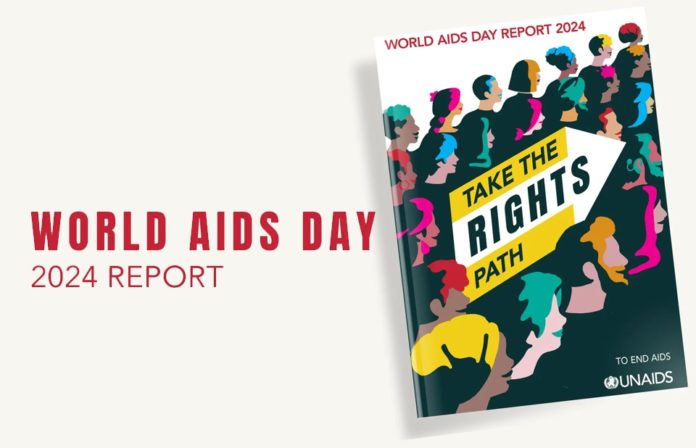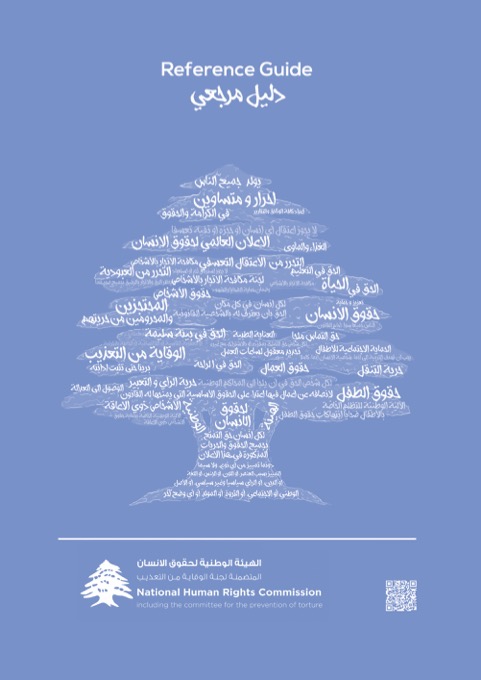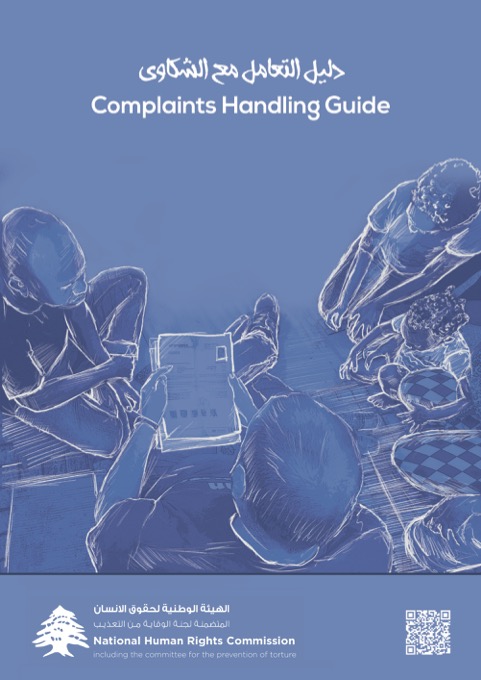هذه المقالة متاحة أيضًا بـ: العربية (Arabic)
On December 1st each year, the world observes World AIDS Day, an important occasion to raise awareness about HIV and AIDS, as well as the health, social, and humanitarian challenges faced by those affected. World AIDS Day 2024 comes at a time when the international community, particularly Lebanon, needs to unite efforts to combat this epidemic, which continues to pose a significant threat to public health.
Ahead of World AIDS Day (1 December), a new report by UNAIDS shows that the world can meet the agreed goal of ending AIDS as a public health threat by 2030 – but only if leaders protect the human rights of everyone living with and at risk of HIV. The report’s message is summed up in its title: “Take the rights path to end AIDS”.
Of the 39.9 million people living with HIV, 9.3 million people are still not accessing life-saving treatment. Last year, 630 000 people died of AIDS-related illnesses, and 1.3 million people around the world newly acquired HIV. In at least 28 countries, the number of new HIV infections is on the rise. To bring down the trajectory of the pandemic, it is imperative that lifesaving programmes can be reached without fear by all who need them.
Every day in 2023, 570 young women and girls aged between 15 and 24 acquired HIV. In at least 22 countries in eastern and southern Africa, women and girls of this age group are three times more likely to be living with HIV than their male peers.
Criminalization and stigmatization of marginalised communities is obstructing access to life-saving HIV services. In the 2021 Political Declaration on Ending HIV/AIDS, countries committed to ensure that by 2025 less than 10% of countries have restrictive legal and policy frameworks that lead to the denial or limitation of access to HIV services. However, in 2023, 63 countries still criminalize same-sex relations. These laws are hindering the HIV response: Among gay men and other men who have sex with men, HIV prevalence is five times higher in countries that criminalize same-sex relations than in those that do not. than in those that do not.
On December 1st each year, the world celebrates World AIDS Day, a significant occasion to raise awareness about HIV and AIDS, and the health, social, and humanitarian challenges faced by those affected. World AIDS Day 2024 comes at a time when the international community, especially Lebanon, needs to unite efforts to combat this ongoing epidemic, which continues to pose a significant threat to public health.
The United Nations has designated the theme for World AIDS Day 2024 as “Working Together to End AIDS.” This theme reflects the ongoing need for collective action at the individual, community, and national levels to address the challenges posed by HIV, reduce stigma, and enhance access to healthcare and treatment for all at-risk groups.
Awareness and Human Rights:
The National Human Rights Commission in Lebanon, through the Committee for the Prevention of Torture, emphasizes the importance of educating the public about HIV and its prevention methods. This awareness should not be limited to at-risk groups but should encompass all segments of Lebanese society, including youth, healthcare workers, affected communities, and marginalized groups. Awareness helps reduce the spread of the virus and change negative attitudes towards those infected.
In this context, the National Human Rights Commission urges the adoption of comprehensive programs aimed at fostering a culture of respect for the rights of people living with HIV and protecting them from discrimination and violations of their human rights. Ensuring their right to appropriate treatment and healthcare, respecting their privacy, and protecting them from all forms of discrimination and stigma are vital to guaranteeing a dignified life for them.
Challenges Related to HIV in Lebanon:
Despite global progress in combating HIV, Lebanon still faces many challenges in this area. Statistics from the National AIDS Program indicate that the virus continues to spread among certain segments of society, especially high-risk groups such as men who have sex with men, people who inject drugs, and sex workers.
Figures show that Lebanon has seen an increase in the number of AIDS cases in recent years, despite efforts to contain the epidemic. This increase is partly due to a rise in undiagnosed cases, often due to lack of awareness and social stigma, which results in delayed access to treatment.
Moreover, access to healthcare and treatment remains a central issue in Lebanon. While antiretroviral medications are partially available, there are challenges in distributing them equitably across the country, especially in remote areas, hindering efforts to treat those infected. Additionally, the lack of adequate training for healthcare practitioners on dealing with AIDS patients, social stigma, and limited information on virus prevention all negatively impact the effectiveness of prevention and treatment programs in Lebanon.
The National AIDS Program in Lebanon:
The National AIDS Program in Lebanon is one of the important initiatives being implemented by the Ministry of Public Health, in collaboration with the World Health Organization and local and international NGOs. The program aims to provide prevention and treatment services to people living with HIV and to strengthen the healthcare system’s capacity to address HIV-related health challenges.
According to available data, the National Program has expanded voluntary testing and health counseling services in various regions, in addition to providing essential medications for people living with HIV. Awareness campaigns have also been launched to spread knowledge about the virus, prevention methods, and to raise awareness about the rights of people living with HIV, creating a discrimination-free environment.
However, Lebanon still has a long way to go to achieve the ultimate goal of ending AIDS by 2030, a target set by the Joint United Nations Programme on HIV/AIDS. This requires intensifying efforts in areas such as awareness, education, and expanding access to health services, especially in remote and rural areas.
International Cooperation and Human Rights:
In this context, the National Human Rights Commission emphasizes the importance of enhancing cooperation between Lebanon and the international community in the fight against HIV/AIDS. Human rights must be an integral part of any health strategy to combat the virus, and it is essential to ensure that all individuals, regardless of their social or cultural background, have access to necessary healthcare. Additionally, Lebanon should seek to repeal all laws that may pose barriers to prevention and treatment, such as laws that criminalize certain behaviors of at-risk individuals.
Strengthening public-private partnerships, along with increasing support from international organizations such as the World Health Organization, will enable Lebanon to develop more effective strategies to combat HIV/AIDS. Support from civil society and human rights organizations will be critical in ensuring the right of people living with HIV to health and care.
On World AIDS Day 2024, the National Human Rights Commission in Lebanon hopes that the Lebanese community will unite and work together to end AIDS while upholding and protecting human rights. The fight against AIDS is not just a health issue but a human rights issue that requires full commitment to global human principles to ensure a safe and dignified life for all individuals, regardless of their health status.
The National Human Rights Commission calls on everyone to actively participate in awareness activities, support national and international efforts to combat HIV, and assist those living with the virus on their treatment journey, while emphasizing the importance of achieving equality and justice in healthcare delivery.
Over the years, a detailed understanding of the HIV epidemic has emerged through the collection, analysis and dissemination of data, helping programmes to reach the right people in the right place and at the right time. Having high-quality data on the AIDS response has enabled ambitious, measurable and time-bound targets to be set for tracking progress and ensuring accountability.


